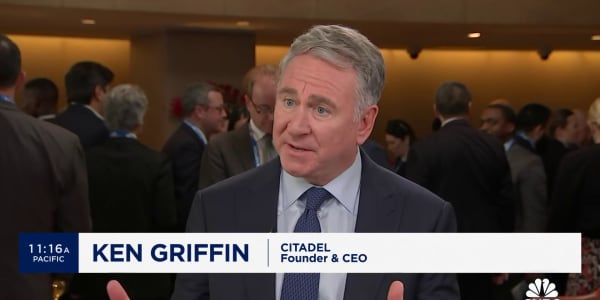Have no doubt, the Federal Reserve is highly concerned about the condition of financial markets.
It's been almost four years exactly since the Fed first announced its policy of monitoring the financial markets for conditions that could pose a risk to economic growth.
"Financial market conditions have deteriorated, and tighter credit conditions and increased uncertainty have the potential to restrain economic growth going forward. In these circumstances, although recent data suggest that the economy has continued to expand at a moderate pace, the Federal Open Market Committee judges that the downside risks to growth have increased appreciably. The Committee is monitoring the situation and is prepared to act as needed to mitigate the adverse effects on the economy arising from the disruptions in financial markets," the Fed said on August 17, 2007.
Of course, the markets were largely underwhelmed by that response.
Financial conditions continued to deteriorate for several more months, cresting in the financial crisis and the recession .
Those months of ineffectiveness have largely been forgotten. The apparent quick success of the extraordinary measures taken by the Fed in the wake of the collapse of Lehman Brothers created the impression that the Fed had the wherewithal to prop up markets.
But the economy failed to recover with financial markets, leading many to doubt once again the effectiveness of the Fed policy. The rapid collapse of market conditions following the end of the second round of quantitative easing now has many wondering if the Fed can do anything but create especially long—and therefore vicious—dead cat bounces. Call it a Dead Fed Bounce.
It's not even clear that the Fed can do that anymore. Now that everyone realizes the Fed fix is temporary, it may not be able to cause anything but the shortest lived rally. Longer term investors will likely sit it out. So you'll just have traders trying to time the rips and dips.
The big risk in the Fed's statement today is to the downside. If the Fed doesn't impress markets with a strong statement, it's likely that markets will react with a vicious sell off.
It's a clear sign of financial distress: all eyes are on the Fed again.
Questions? Comments? Email us at
Follow John on Twitter @ twitter.com/Carney
Follow NetNet on Twitter @ twitter.com/CNBCnetnet
Facebook us @






